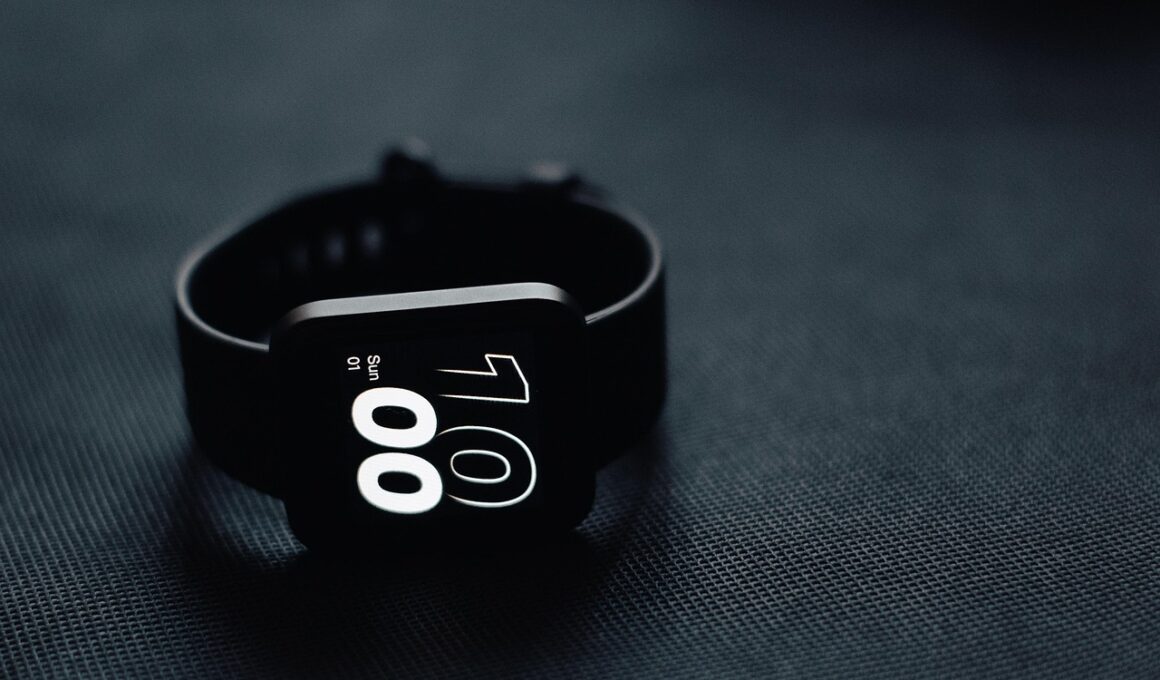Exciting Innovations in Fitness Gadgets Set for Release
The fitness technology landscape is constantly evolving, and upcoming gadgets are sure to make waves in 2024. Companies are now focused on developing smarter, more intuitive devices that cater to the specific needs of users. Notably, wearable technologies are set to advance significantly, featuring improved sensors and AI capabilities. The new generation of smartwatches is expected to monitor health metrics with greater precision, providing real-time insights on heart rate, oxygen saturation, and stress levels. These innovations will empower fitness enthusiasts to make informed decisions about their wellness. Furthermore, the integration of voice assistants into fitness devices is also anticipated to enhance user experience, allowing for hands-free operation. For example, new smart trainers will provide live feedback during workouts, making it easier to maintain proper form. Whether individual or group activities, these gadgets will help keep users motivated and engaged. With brands like Fitbit, Apple, and Garmin rolling out their latest devices, consumers can expect a year packed with groundbreaking advancements that reshape their fitness journey. Stay tuned, as 2024 promises to be an exciting year in fitness technology.
Smart Wearable Technology
As we dive deeper into the realm of fitness gadgets, smart wearable technology stands at the forefront. Innovations like biometric clothing, which tracks your heart rate and body temperature, represent a significant leap forward. These intelligent fabrics can provide actionable insights while keeping the user comfortable during workouts. For instance, companies are working on shirts embedded with sensors that relay vital statistics to connected apps. Beyond clothing, smart footwear is also gaining traction, combining style with functionality. Shoes equipped with GPS can now provide detailed reports on running metrics, like pace and distance traveled. This information helps users set and achieve their fitness goals more effectively. Additionally, sleep-tracking devices are evolving, integrating seamlessly into watches and bands, ensuring recovery is prioritized. Improvement in sleep quality is critical for fitness enthusiasts, as recovery plays a vital role in performance gains. Preparing for your next workout is as essential as the workout itself. Upcoming innovations promise even deeper integrations with smart home systems, allowing users to manage their training environments effectively and conveniently. The future looks promising as these gadgets continue to push the boundaries of fitness technology.
Connected gym equipment is another thrilling area where technology is making a significant impact. Popularized by the pandemic, home fitness equipment has evolved to include smart features, enabling a more immersive workout experience. Devices such as smart stationary bikes and treadmills are equipped with built-in screens that stream live classes, offering users access to expert trainers from home. Furthermore, these machines can track user performance metrics, allowing for personalized workout recommendations based on individual progress. Integration with popular fitness apps ensures a seamless transition between home and gym workouts. As companies innovate, features like gamification are incorporated to boost motivation, making sessions more engaging. The battle between fitness enthusiasts and friends for leaderboards can make workouts feel competitive and fun. Additionally, syncing with wearables will enhance data accuracy, allowing users to analyze trends over time. Recovery options, like guided cooldown sessions, can also be integrated, offering a holistic approach to fitness. The convenience of connected gym equipment will undoubtedly make it a favorite for many looking to maintain or improve their fitness journey.
Innovative Fitness Apps
The evolution of fitness technology isn’t limited to hardware; mobile applications play a crucial role as well. Upcoming fitness apps are gearing towards providing tailored experiences, offering features such as personalized meal planning, workout customization, and social networking. Integration with AI algorithms will allow these apps to learn from user behavior, refining recommendations and strategies over time. Moreover, augmented reality (AR) is set to revolutionize workouts by offering immersive experiences that blend real-world environments with virtual guidance. Imagine performing yoga on a beach, guided by a virtual instructor, right from your living room! This gamification of fitness will appeal to casual users and veterans alike, propelling user engagement to new heights. Additionally, fitness apps are poised to expand their communities, enabling users to participate in challenges and share their achievements easily. This social dynamic fosters an environment of accountability and motivation, vital for sustained fitness progress. As these technological landscapes evolve, anticipating the possibilities is thrilling. The amalgamation of these features promises to reshape how users engage with their fitness journeys.
Health tracking is another significant aspect driving the development of upcoming fitness gadgets. Enhanced metrics will provide users insight into their well-being, guiding them toward healthier decisions. From glucose monitors to advanced heart rate monitoring, these tools empower users to make better lifestyle changes. Moreover, dietary tracking features integrated within wearables will streamline nutrition management. Future devices will support scanning food labels, offering real-time calorie and nutritional information directly to the user’s app. This will greatly facilitate achieving dietary goals, removing much of the guesswork involved. As healthcare and technology merge, users can expect improved functionality that aligns fitness with health objectives. Additionally, user privacy and data protection remain paramount, and upcoming gadgets are focusing more on these elements. Enhanced security measures will alleviate concerns over data misuse while ensuring users’ great experience. Providers are increasingly transparent about how data is used and shared. Innovators are recognizing that user trust is crucial, and ongoing advancements in fitness technology can only flourish in an environment where privacy is respected and maintained. Innovations around health tracking will take fitness devices to new dimensions.
Personalized Fitness Devices
Personalization is the current trend dominating the fitness tech space. Upcoming gadgets are expected to leverage machine learning to create more customized fitness experiences. These devices will adapt workout plans and dietary recommendations based on user performance and preferences. For instance, smart weights may adjust their resistance based on the user’s strength progression, providing a more tailored training experience. This level of customization could transform how individuals approach their fitness goals, enabling continual progress while minimizing injury risk. Furthermore, upcoming fitness trackers will be equipped with advanced recovery analysis features, offering insights into muscle fatigue and readiness to train. This can help users effectively plan their physical activities and recovery days, ensuring they always perform at their best. With many users pivoting towards home gyms or mixed approaches to fitness, personalized technology can cater to all settings. The combination of virtual training and individualized data enables a unique fitness journey for every user. The anticipation surrounding these innovative offerings reflects a keen interest in elevating personal health and wellness experiences.
Finally, sustainability is emerging as a key consideration in the design of forthcoming fitness gadgets. Manufacturers are beginning to prioritize eco-friendly materials and production processes to align with conscious consumer values. From biodegradable phone cases to solar-powered fitness trackers, the landscape is evolving. More brands are focusing on developing long-lasting, energy-efficient products that reduce the environmental footprint. This shift is not only beneficial for the planet but resonates with consumers who wish to make responsible purchasing decisions. Companies will likely implement recycling programs to promote circular economies, effectively minimizing electronic waste. Beyond materials, fostering sustainable fitness ecosystems involves creating programs that encourage outdoor activities and mindful practices. Integrating these elements into fitness gadget design will appeal to the environmentally conscious generation. As health and wellbeing intersect with sustainability, users can feel more connected to their fitness gear knowing they contribute positively to the world around them. This merge of thoughtful design and innovative technology emphasizes that future fitness journeys can be impactful on personal and global scales.





